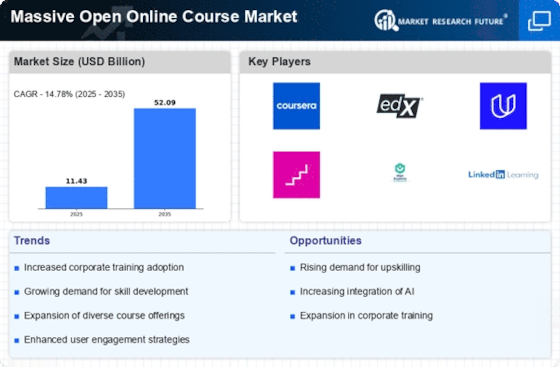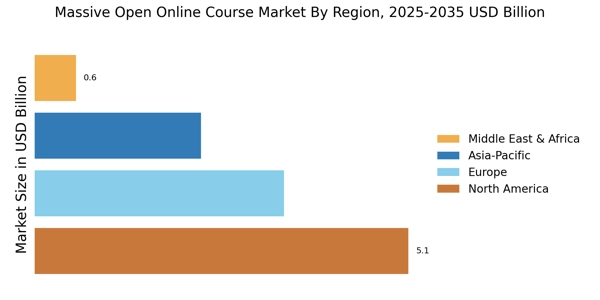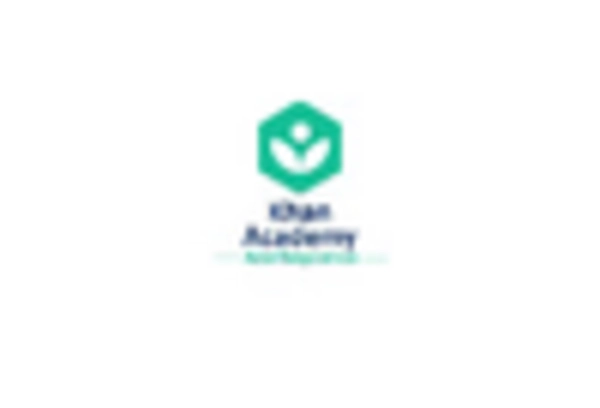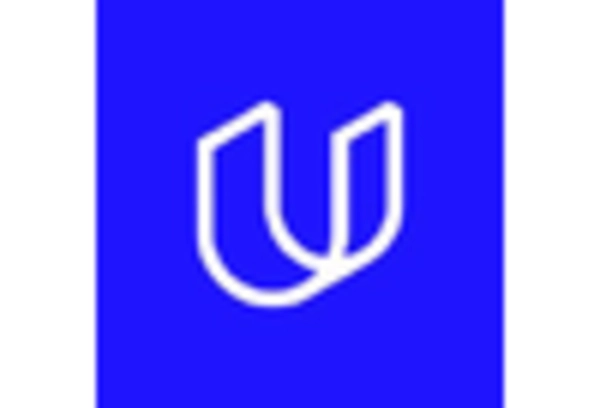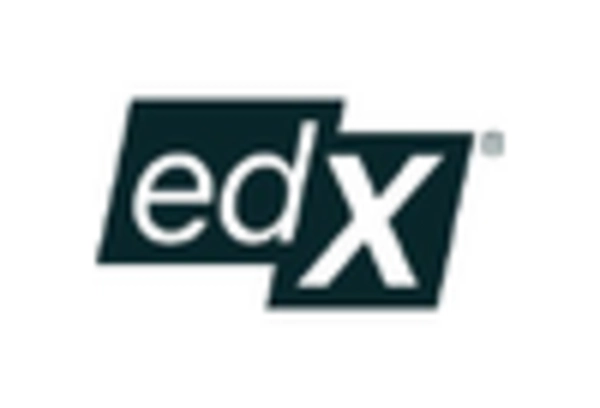Increased Demand for Flexible Learning
The Massive Open Online Course Market is experiencing a notable surge in demand for flexible learning options. As individuals seek to balance work, education, and personal commitments, the appeal of online courses that offer asynchronous learning opportunities becomes increasingly evident. According to recent data, approximately 70% of learners prefer the flexibility that online courses provide, allowing them to study at their own pace. This trend is particularly pronounced among working professionals who are looking to upskill or reskill without disrupting their careers. The Massive Open Online Course Market is thus positioned to cater to this growing need, offering a diverse array of courses that can be accessed anytime and anywhere, thereby enhancing the overall learning experience.
Technological Advancements in Education
Technological advancements are playing a pivotal role in shaping the Massive Open Online Course Market. Innovations such as artificial intelligence, machine learning, and virtual reality are being integrated into online learning platforms, creating more engaging and interactive educational experiences. For instance, AI-driven analytics can personalize learning paths for students, enhancing their understanding and retention of material. Furthermore, the incorporation of virtual reality allows learners to immerse themselves in simulated environments, which can be particularly beneficial for fields such as medicine and engineering. As these technologies continue to evolve, they are likely to attract more learners to the Massive Open Online Course Market, thereby expanding its reach and impact.
Growing Acceptance of Online Credentials
The Massive Open Online Course Market is witnessing a shift in the perception of online credentials. Employers are increasingly recognizing the value of skills acquired through online courses, leading to a greater acceptance of these credentials in the job market. Recent surveys indicate that nearly 60% of hiring managers consider online certifications as equivalent to traditional degrees, particularly in technology and business sectors. This trend is encouraging more individuals to pursue online learning opportunities, as they seek to enhance their employability and career prospects. Consequently, the Massive Open Online Course Market is likely to benefit from this growing acceptance, as more learners invest in courses that provide recognized qualifications.
Global Collaboration and Knowledge Sharing
The Massive Open Online Course Market is fostering a culture of global collaboration and knowledge sharing. Online platforms enable learners from diverse backgrounds and geographical locations to connect, share insights, and collaborate on projects. This interconnectedness enhances the learning experience, as students can gain perspectives from peers around the world. Additionally, partnerships between educational institutions and industry leaders are becoming more common, facilitating the development of courses that are relevant to current market needs. As this trend continues, the Massive Open Online Course Market is likely to thrive, promoting a more inclusive and collaborative approach to education that transcends traditional boundaries.
Diverse Course Offerings and Specializations
The Massive Open Online Course Market is characterized by an expanding array of course offerings and specializations. Educational institutions and organizations are increasingly developing niche courses that cater to specific interests and industries, ranging from data science to creative arts. This diversification not only attracts a broader audience but also addresses the unique needs of various sectors. For example, the demand for courses in cybersecurity has surged, reflecting the increasing importance of digital security in today's world. As more learners seek specialized knowledge, the Massive Open Online Course Market is likely to continue evolving, providing tailored educational experiences that meet the demands of a dynamic job market.


